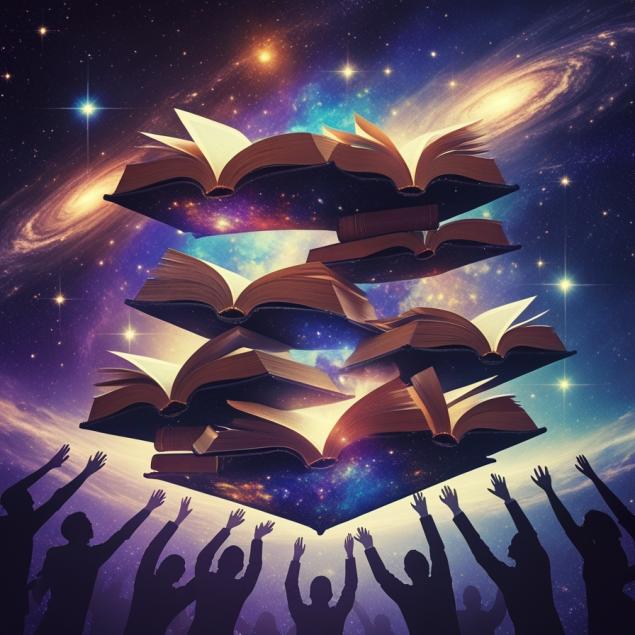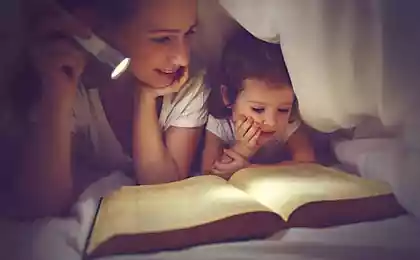160
Dear daughter, if you come to a young man's house and he doesn't have bookshelves full of books.
<! DOCTYPE html
The wisdom of bookshelves: a guide to choosing a life partner

The wisdom of bookshelves: a guide to choosing a life partner
In a world where first impressions are often shaped by appearance or social status, there is an ancient wisdom that offers a completely different approach to assessing a potential partner. This wisdom, attributed to the great thinker and writer Jorge Luis Borges, says: “Dear daughter, if you come to a young man’s house and he does not have bookshelves with books – do not continue to know him.” While the exact authorship of this quote remains a matter of debate, its profound meaning resonates with generations of people who value intellectual development and culture.
Books are the mirror of the soul. They reflect not only what we know, but also what we strive for.
Psychology of bookshelves: what our books say about us
Modern psychology confirms the intuitive wisdom of this advice. Studies show that a person’s home library is one of the most reliable indicators of their personal qualities, intellectual level and life priorities. Psychology professor Jordan Peterson notes that “a person’s environment, including his books, shapes his thinking and therefore his actions.”

What book shelves will tell you about character
Home library analysis can reveal many aspects of personality. The variety of genres indicates the breadth of interests and openness to new experiences. The presence of classical literature indicates respect for cultural heritage and a desire for a deep understanding of human nature. Popular science literature indicates curiosity and a desire to constantly learn.
It is important to note that it is not about the number of books, but about their availability as such. Even a small but thoughtful collection can tell more about a person than a vast library put together for display.
The scientific basis of the “book test”
Neurobiological studies in recent years show that reading books physically changes the structure of the brain. Regular reading develops areas responsible for empathy, critical thinking, and emotional intelligence. Dr. Gregory Burns from Emory University found that reading literature strengthens connections in the left angular gyrus of the brain responsible for understanding language.
Correlation between reading and partner qualities
A 2019 study by the British Council found a direct correlation between regular reading and qualities such as:
Readers of fiction show higher levels of emotional intelligence and ability to empathy.
People with a developed habit of reading have a richer vocabulary and the ability to communicate deeply.
Reading is a proven way to reduce stress levels and develop psychological resilience.
The ability to read a book to the end correlates with perseverance and the ability to achieve goals.
Practical tips: how to apply the "book test"
Applying this principle in real life requires sensitivity and context. It’s important to remember that the lack of books doesn’t always mean a lack of intelligence or culture – in the digital age, many people prefer electronic formats.

Red flags and positive signals
You should be wary if a person:
Modern Interpretation of Ancient Wisdom
In the XXI century, the principle of “book shelves” is transformed, but does not lose its relevance. Today, equivalent indicators can serve as subscriptions to quality podcasts, the availability of educational courses, participation in intellectual discussions in social networks.
Adapting to the Digital Age
A modern “book test” may include:
Cultural Importance of Reading in Relationships
Research by family psychologists shows that couples who read together or discuss what they read show higher levels of relationship satisfaction. Shared reading creates a unique form of intimacy—an intellectual intimacy that complements the emotional and physical.
Reading as the Foundation of Strong Relationships
Couples who practice reading together note the following benefits:
Conclusion: Wisdom for All Time
The advice about bookshelves remains relevant not because books themselves make a person better, but because they reflect fundamental qualities of character: curiosity, desire for growth, respect for knowledge and culture. In an age of information abundance, the ability to choose quality content for consumption becomes an even more important indicator of personality maturity.
Choosing a life partner, we choose not only a partner for living together, but also a companion for long years of communication, a companion for intellectual growth and a person who will influence the formation of our children. Books are only one tool for evaluation, but they are very eloquent.
Glossary
Emotional intelligence The ability to recognize, understand and manage one’s emotions, and to interact effectively with others’ emotions.
Empathy. The ability to understand and share the feelings of another person, to put yourself in his place.
Critical thinking - objective analysis and evaluation of information in order to form an informed judgment.
Neuroplasticity The ability of the brain to change its structure and function in response to experience and learning.
Cognitive functions mental processes involving perception, attention, memory, thinking and speech.
Intellectual proximity A form of emotional connection based on the joint intellectual search and exchange of ideas.
Article prepared for bashny.net
The wisdom of bookshelves: a guide to choosing a life partner

The wisdom of bookshelves: a guide to choosing a life partner
In a world where first impressions are often shaped by appearance or social status, there is an ancient wisdom that offers a completely different approach to assessing a potential partner. This wisdom, attributed to the great thinker and writer Jorge Luis Borges, says: “Dear daughter, if you come to a young man’s house and he does not have bookshelves with books – do not continue to know him.” While the exact authorship of this quote remains a matter of debate, its profound meaning resonates with generations of people who value intellectual development and culture.
Books are the mirror of the soul. They reflect not only what we know, but also what we strive for.
Psychology of bookshelves: what our books say about us
Modern psychology confirms the intuitive wisdom of this advice. Studies show that a person’s home library is one of the most reliable indicators of their personal qualities, intellectual level and life priorities. Psychology professor Jordan Peterson notes that “a person’s environment, including his books, shapes his thinking and therefore his actions.”

What book shelves will tell you about character
Home library analysis can reveal many aspects of personality. The variety of genres indicates the breadth of interests and openness to new experiences. The presence of classical literature indicates respect for cultural heritage and a desire for a deep understanding of human nature. Popular science literature indicates curiosity and a desire to constantly learn.
It is important to note that it is not about the number of books, but about their availability as such. Even a small but thoughtful collection can tell more about a person than a vast library put together for display.
The scientific basis of the “book test”
Neurobiological studies in recent years show that reading books physically changes the structure of the brain. Regular reading develops areas responsible for empathy, critical thinking, and emotional intelligence. Dr. Gregory Burns from Emory University found that reading literature strengthens connections in the left angular gyrus of the brain responsible for understanding language.
Correlation between reading and partner qualities
A 2019 study by the British Council found a direct correlation between regular reading and qualities such as:
Readers of fiction show higher levels of emotional intelligence and ability to empathy.
People with a developed habit of reading have a richer vocabulary and the ability to communicate deeply.
Reading is a proven way to reduce stress levels and develop psychological resilience.
The ability to read a book to the end correlates with perseverance and the ability to achieve goals.
Practical tips: how to apply the "book test"
Applying this principle in real life requires sensitivity and context. It’s important to remember that the lack of books doesn’t always mean a lack of intelligence or culture – in the digital age, many people prefer electronic formats.

Red flags and positive signals
You should be wary if a person:
- Openly dismissive of reading
- He considers books a “waste of time.”
- There is no book that impresses him.
- Demonstrates a lack of curiosity about new knowledge
- Availability of books in different formats (paper, electronic, audiobooks)
- Ability to talk passionately about what you read
- Readiness to discuss ideas and concepts
- The desire for constant self-education
Modern Interpretation of Ancient Wisdom
In the XXI century, the principle of “book shelves” is transformed, but does not lose its relevance. Today, equivalent indicators can serve as subscriptions to quality podcasts, the availability of educational courses, participation in intellectual discussions in social networks.
Adapting to the Digital Age
A modern “book test” may include:
- Analysis of digital libraries and bookmarks
- Evaluation of the quality of consumed content
- Observation of the capacity for critical thinking
- Interest in self-development and learning
Cultural Importance of Reading in Relationships
Research by family psychologists shows that couples who read together or discuss what they read show higher levels of relationship satisfaction. Shared reading creates a unique form of intimacy—an intellectual intimacy that complements the emotional and physical.
Reading as the Foundation of Strong Relationships
Couples who practice reading together note the following benefits:
- Common topics for deep conversations
- The development of empathy through the joint experience of literary subjects
- Creating rituals of intimacy (evening reading, book discussion)
- Mutual intellectual enrichment
Conclusion: Wisdom for All Time
The advice about bookshelves remains relevant not because books themselves make a person better, but because they reflect fundamental qualities of character: curiosity, desire for growth, respect for knowledge and culture. In an age of information abundance, the ability to choose quality content for consumption becomes an even more important indicator of personality maturity.
Choosing a life partner, we choose not only a partner for living together, but also a companion for long years of communication, a companion for intellectual growth and a person who will influence the formation of our children. Books are only one tool for evaluation, but they are very eloquent.
Glossary
Emotional intelligence The ability to recognize, understand and manage one’s emotions, and to interact effectively with others’ emotions.
Empathy. The ability to understand and share the feelings of another person, to put yourself in his place.
Critical thinking - objective analysis and evaluation of information in order to form an informed judgment.
Neuroplasticity The ability of the brain to change its structure and function in response to experience and learning.
Cognitive functions mental processes involving perception, attention, memory, thinking and speech.
Intellectual proximity A form of emotional connection based on the joint intellectual search and exchange of ideas.
Article prepared for bashny.net
Rumination: How to Stop a Destructive Thought Carousel
How to choose a laptop: comparison of characteristics and prices in 2025























